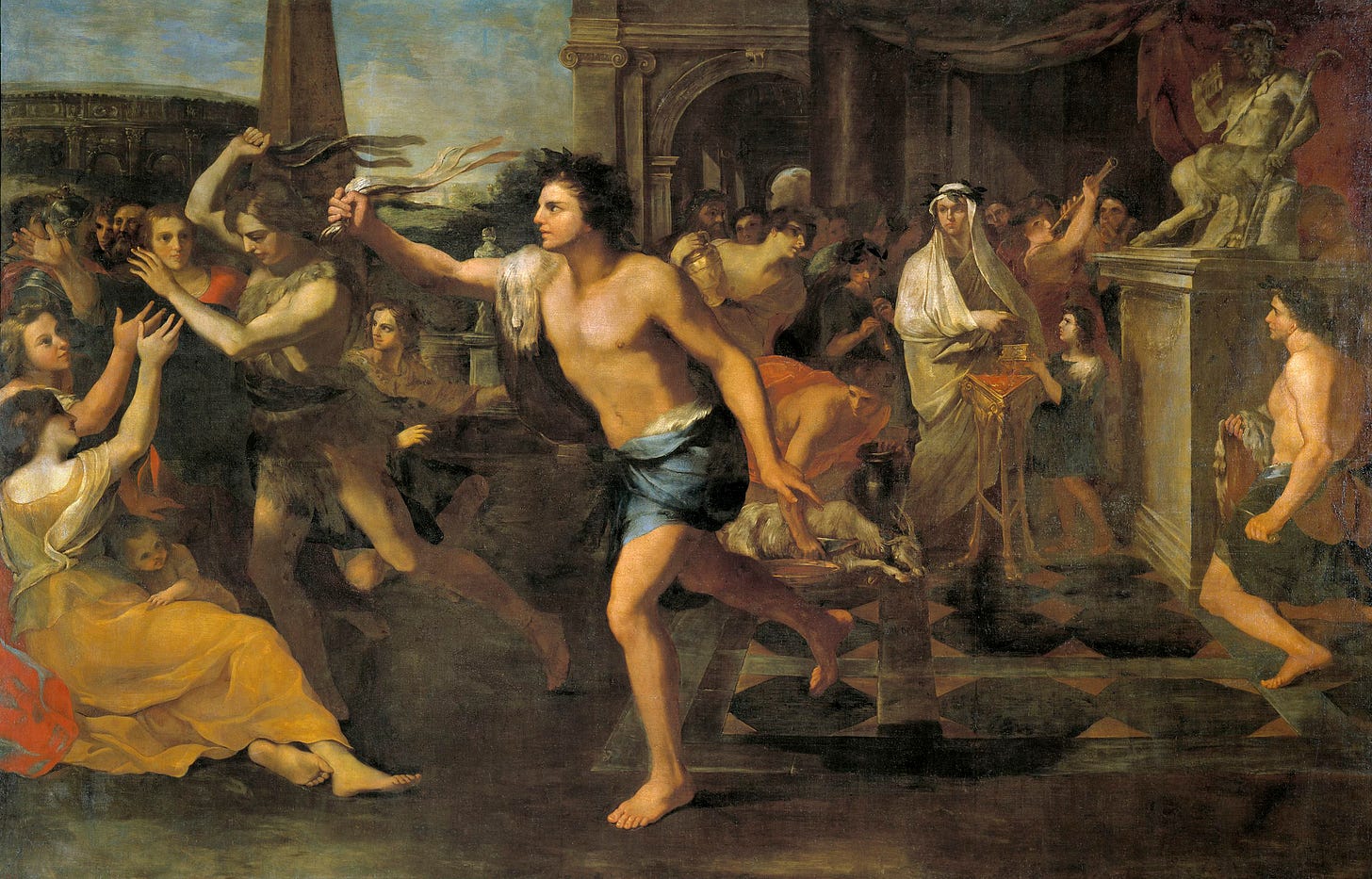Short Stack: Valentine's Day
There’s more to Valentine’s Day than postmodern memes of hearts suggest, even though the history remains somewhat murky.
Here is the audio version of this Substack essay, for those who prefer listening over reading:
Valentine’s Day is typically associated with romantic love and sexual attraction—a shallow, postmodern version of what classical Greek thinkers called eros. The Roman god Cupid is often pictured as a cute, chubby, flying angel-like being shooting arrows of hearts, and chocolate. Lots of chocolate.
There’s more to Valentine’s Day than postmodern memes suggest, even though the history remains somewhat murky.
There were several men of high-profile named Valentinus in ancient Rome. One for whom we have records was a Christian-Gnostic priest and theologian, born in Egypt around 100 AD, who later preached and wrote in Rome under Pope Hyginus.
His Gnostic teachings likely influenced the later theologian Arius, namesake of the most famous heresy in the Catholic Church—the Arian Heresy—which asserted that Jesus was separate from and therefore inferior to the One God of the Universe.
The Catholic Church responded to the Arian Heresy with the Nicene Creed, which asserted that Jesus was separate from and equal to and same as the One God of the Universe, all simultaneously, because Jesus was “begotten of the Father, God from God, Light from Light, true God from true God, begotten, not made, consubstantial of one Being with the Father.”
No Hearts and Candies for Heretics
This heretical teacher of a heretical teacher, however, is not the Valentine we honor today with hearts and candy.
Another, later Valentinus was likely born sometime in the early 3rd Century AD and lived under Emperor Claudius (d. 270 AD). Claudius, born with all kinds of physical infirmities, ascended to the throne of the Roman Empire after his Emperor-nephew, the bizarre and cruel Caligula, was assassinated by one of his own guards.
Claudius, as Emperor, executed this latter day Valentinus. Why? Because the latter Valentinus dared to marry Christian couples in direct violation of Roman law, refusing to abandon his religious faith or his religious duty, as he understood them.
It seems the Roman government, like many governments before and after, was quite interested in controlling who could and could not marry, and how people would live their lives. Valentinus, fortified by religious conviction, pushed back against that government control. The price of his defiance was death at the hands of government bureaucrats.
This happened early in Christian history when those in the Roman government viewed Christians as a threat to their ruling power. Christians, after all, called someone other than Caesar “King of Kings.”
But, not long after, the Roman government figured out that Christian soldiers would fight bravely, and even die, if they believed they were fighting for a Christian cause. That’s when Constantine adopted Christianity as the official religion of the Roman Empire, around 312 AD, effectively transforming every Roman cause into a Christian cause.
Soon after, Roman legions became Christian evangelists and proselytizers as the Roman Empire spread Christianity throughout the Western World.
Lupercalia: The Roman Fertility Festival
In the late 5th Century, after bestowing sainthood on Valentinus, the Catholic Church banned the mid-February Roman fertility festival of Lupercalia, and then later created the Feast of Saint Valentine—forerunner to Valentine’s Day.
Celebrated annually from February 13–15, Lupercalia was a pagan festival dedicated to fertility, purification, and health. It honored Lupa, the she-wolf who (allegedly) nursed Romulus and Remus (mythical founders of Rome), and Faunus, god of agriculture.
Lupercalia featured animal sacrifices, gentle whipping of women with strips of animal hides—believed to ensure fertility and ease childbirth—and a kind of matchmaking lottery where young men drew young women’s names from a jar, pairing couples for the fertility festival, sometimes longer.

In either 494 or 495 AD, Pope Gelasius I banned the festival of Lupercalia. While the precise origins remain a disputed subject of historical research, we know that later the Church declared February 14 (curious choice of date, eh?) as the annual Feast of St. Valentine, honoring the Catholic martyr who accepted execution and refused to stop marrying Christian couples who wanted to marry.
Over time, the Roman festival of Lupercalia was eclipsed by Valentine’s Day.
Courage To Defy An Empire
While there remains much that is unknown about the Valentinus for whom Valentine’s Day is named, the origin of his name is interesting: “Valens,” in Latin, means strength, fortitude, vigor. Only a man with valens, I suppose, would challenge and openly defy a government he viewed as unjust, especially a government as big and powerful as the Roman Empire.

So, go ahead and talk sweet nothings to your sweetheart this Valentine’s Day. Send pictures of babies shooting cute little heart arrows of love and desire. Eat chocolates until your stomach hurts.
But let us not forget what made this day worth commemorating: nothing less than a revolutionary act of defiance against a government that controlled its subjects and confiscated the property of those who lived within its scope of power.
Happy Valentine’s Day, Krannawitter-style.







